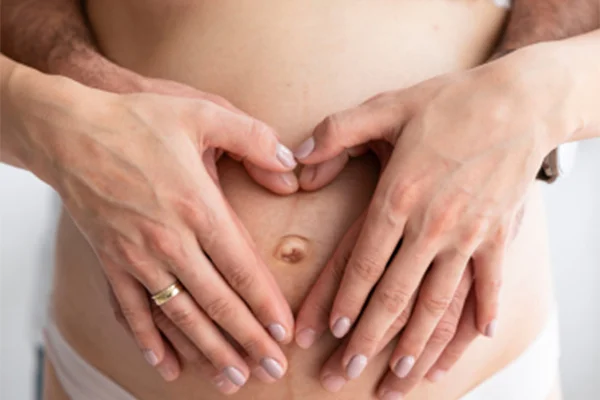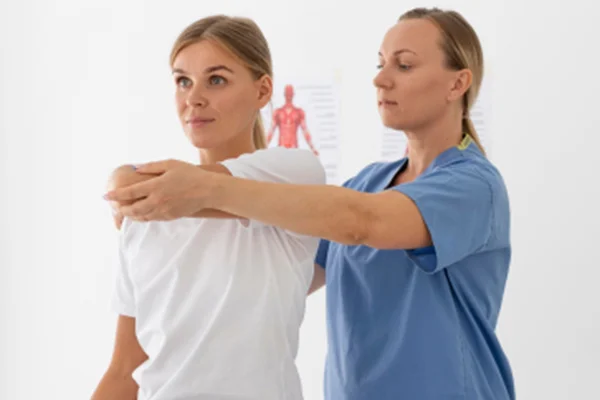Navigating Pregnancy and Postpartum Recovery: The Role of Rehabilitation
Pregnancy and childbirth are profound experiences that bring significant changes to a woman’s body. These changes, while natural, can sometimes lead to discomfort, pain, and a range of physical challenges that require specialized care. Rehabilitation plays a crucial role in helping women navigate these changes, ensuring a smoother pregnancy and a more effective postpartum recovery. In this blog, we delve into the importance of rehabilitation during and after pregnancy, exploring how it can help women maintain their health and well-being during this transformative time.
The Importance of Rehabilitation During Pregnancy
Pregnancy is a period of intense physical transformation. As the body adapts to support the growing baby, women may experience a variety of musculoskeletal issues, including back pain, pelvic pain, and joint discomfort. Rehabilitation can address these issues, providing relief and promoting overall health.
Benefits of Prenatal Rehabilitation
- Pain Management: Prenatal rehabilitation techniques, such as gentle exercises and manual therapy, can help alleviate common pregnancy-related pains, such as lower back pain and pelvic girdle pain.
- Improved Posture: As the baby grows, changes in posture are inevitable. Rehabilitation can help maintain proper alignment, reducing strain on the back and joints.
- Strengthening Core Muscles: Strengthening the core muscles, including the pelvic floor, helps support the body during pregnancy and prepares it for labor and delivery.
- Enhanced Flexibility: Stretching exercises can improve flexibility, making it easier to cope with the physical demands of pregnancy and childbirth.
- Preparation for Labor: Rehabilitation exercises can enhance endurance and strength, aiding in a smoother labor process.
The Role of Rehabilitation in Postpartum Recovery
After childbirth, the body undergoes a healing process as it returns to its pre-pregnancy state. Postpartum rehabilitation is essential in supporting this recovery, addressing issues such as muscle weakness, pelvic floor dysfunction, and postpartum depression.
Benefits of Postpartum Rehabilitation
- Pelvic Floor Recovery: Childbirth can weaken the pelvic floor muscles, leading to incontinence and pelvic organ prolapse. Rehabilitation focuses on restoring pelvic floor strength and function.
- Abdominal Muscle Healing: Pregnancy can cause diastasis recti, a separation of the abdominal muscles. Targeted exercises help close this gap and restore abdominal strength.
- Pain Relief: Postpartum rehabilitation can alleviate pain in the back, hips, and other areas affected by childbirth.
- Improved Mobility: Rehabilitation exercises enhance overall mobility, making it easier to perform daily activities and care for the newborn.
- Mental Health Support: Physical rehabilitation is often complemented by psychological support, helping new mothers cope with the emotional challenges of postpartum life.
Specialized Techniques in Pregnancy and Postpartum Rehabilitation
Our therapists employ a range of specialized techniques to address the unique needs of pregnant and postpartum women. These techniques are designed to promote healing, enhance strength, and support overall well-being.
1. Pelvic Floor Exercises
Pelvic floor exercises, such as Kegels, are crucial for strengthening the muscles that support the bladder, uterus, and bowel. These exercises help prevent and treat incontinence and improve sexual health.
2. Manual Therapy
Manual therapy involves hands-on techniques to relieve muscle tension, improve circulation, and promote healing. It can be particularly effective in alleviating back and pelvic pain during and after pregnancy.
3. Breathing Exercises
Breathing exercises help enhance lung capacity, reduce stress, and improve core stability. They are beneficial during pregnancy and can aid in labor and postpartum recovery.
4. Strength Training
Strength training exercises are tailored to the needs of pregnant and postpartum women. These exercises focus on the core, back, and leg muscles, improving overall strength and endurance.
5. Stretching and Flexibility Exercises
Stretching exercises improve flexibility, reduce muscle tension, and promote relaxation. They are essential for maintaining mobility and preventing injury.
The Treatment Process
Pregnancy and postpartum rehabilitation follow a structured treatment process to ensure the best outcomes for each patient. Here’s what you can expect:
1. Initial Assessment
The therapist conducts a comprehensive evaluation, including a detailed medical history and physical examination. This assessment helps identify specific needs and develop a personalized treatment plan.
2. Individualized Treatment Plan
Based on the assessment, the therapist creates a tailored treatment plan that addresses the patient’s unique needs and goals. This plan includes a combination of exercises, manual therapy, and education.
3. Hands-On Therapy
The therapist applies hands-on techniques to relieve pain, improve mobility, and promote healing. These techniques are adjusted based on the patient’s progress and response to treatment.
4. Exercise and Rehabilitation
In addition to hands-on therapy, the treatment plan includes exercises to strengthen muscles, improve flexibility, and enhance overall function. The therapist guides the patient through these exercises and monitors progress.
5. Ongoing Evaluation and Adjustment
Throughout the treatment process, the therapist continuously evaluates the patient’s progress and adjusts the treatment plan as needed. This ensures that the patient achieves the best possible outcomes and maintains long-term health.
Authentic Testimonials from Patients
1. Anna T.
“During my second pregnancy, I experienced severe pelvic pain that made it difficult to walk. The prenatal rehabilitation exercises and manual therapy at Direct Care Rehab were a lifesaver. I felt supported and my pain was significantly reduced.”
2. Laura B.
“After giving birth, I struggled with incontinence and back pain. The postpartum rehabilitation program helped me regain control of my pelvic floor and strengthen my core. The therapists were knowledgeable and compassionate, making my recovery much smoother.”
3. Jessica M.
“I had diastasis recti after my first pregnancy, which affected my confidence and daily activities. The specialized exercises and guidance from my therapist at Direct Care Rehab closed the gap in my abdominal muscles and restored my strength.”
Common FAQs about Pregnancy and Postpartum Rehabilitation
1. What is pregnancy and postpartum rehabilitation?
Pregnancy and postpartum rehabilitation is a specialized form of therapy designed to address the physical changes and challenges that women experience during and after pregnancy.
2. How soon can I start postpartum rehabilitation?
You can typically start postpartum rehabilitation as soon as your doctor gives you clearance, usually around six weeks after delivery.
3. What conditions can pregnancy and postpartum rehabilitation treat?
This type of rehabilitation can treat a range of conditions, including pelvic pain, incontinence, diastasis recti, back pain, and postpartum depression.
4. Is pregnancy and postpartum rehabilitation safe?
Yes, pregnancy and postpartum rehabilitation is safe when performed by a trained therapist. The exercises and techniques are tailored to the specific needs of pregnant and postpartum women.
5. Do I need a referral for pregnancy and postpartum rehabilitation?
In most cases, you do not need a referral to see a physical therapist for pregnancy and postpartum rehabilitation. However, it’s always best to check with your insurance provider for specific requirements.
Conclusion
Navigating the physical and emotional changes of pregnancy and postpartum recovery can be challenging. However, with the right rehabilitation program, women can manage these changes effectively, ensuring a healthier and more comfortable experience. Pregnancy and postpartum rehabilitation offers a comprehensive approach to addressing the unique needs of women during this transformative time, providing the support needed to maintain optimal health and well-being.
At Direct Care Rehab, our team of experienced therapists is dedicated to providing high-quality, personalized care to help you through your pregnancy and postpartum journey. Book a consultation with us today and take the first step towards a healthier, more confident you.


